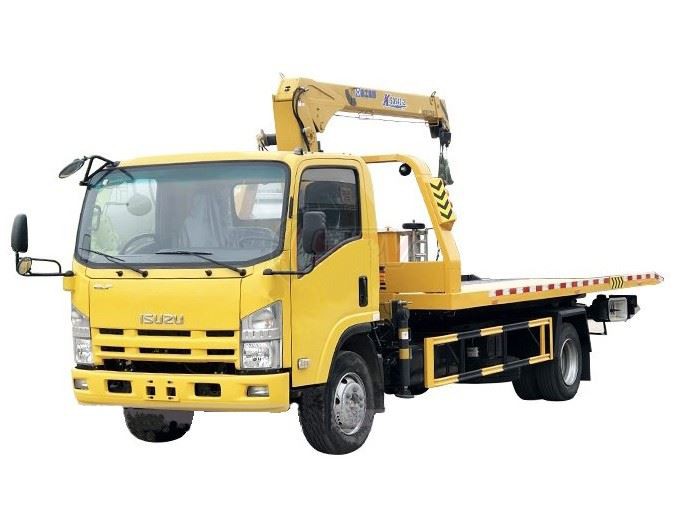Roll off trucks play a crucial role in waste management, construction, and various industries where heavy materials need to be transported. These specialized vehicles are designed to efficiently load, transport, and unload large containers without requiring extensive labor or equipment. In this article, we will explore the essential features, applications, and benefits of roll off trucks, as well as provide practical examples, tips, and answers to common questions.
Table of Contents
- What is a Roll Off Truck?
- How Do Roll Off Trucks Work?
- Types of Roll Off Trucks
- Applications of Roll Off Trucks
- Benefits of Using Roll Off Trucks
- Roll Off Truck Safety Tips
- Frequently Asked Questions
What is a Roll Off Truck?
A roll off truck is a specialized vehicle that utilizes a hydraulic system to lift and place large containers, known as roll off dumpsters, onto the truck bed. These trucks are equipped with a roll-off mechanism that allows the containers to be easily removed and replaced, making them ideal for transporting bulk loads of waste materials, construction debris, and other heavy items.
How Do Roll Off Trucks Work?
The operation of a roll off truck is straightforward, involving the following key components:
- Container: The roll off dumpster which can vary in size, commonly ranging from 10 to 40 cubic yards.
- Hydraulic System: Raises and lowers the container onto and off of the truck bed.
- Winch: Used to pull or release the container during loading and unloading.
When the truck arrives at a site, the driver positions it so that the container can be placed on firm ground. Using the hydraulic system, the truck raises the back of the container, allowing it to roll off the truck bed. The driver then lowers the container securely onto the ground. To pick up the container, the process is reversed.
Step-by-Step Loading Process
- Align the truck with the container.
- Engage the hydraulic system to lift the container.
- Roll the container onto the truck bed.
- Secure the container in place using straps or locks.
Step-by-Step Unloading Process
- Position the truck at the drop-off location.
- Engage the winch to release the container.
- Lower the rear of the truck to allow the container to roll off.
- Ensure the container is properly placed before driving away.
Types of Roll Off Trucks
Roll off trucks come in a variety of types to meet different operational needs:
Single Axle Roll Off Trucks
These trucks are compact and suitable for residential projects, where weight restrictions may be a concern. They typically have a lower hauling capacity but are easier to maneuver in tight spaces.
Dual Axle Roll Off Trucks
With increased weight capacity, dual axle trucks are ideal for larger commercial jobs. They can carry heavier loads and handle more substantial roll off containers efficiently.
Triaxle Roll Off Trucks
These trucks are designed for heavy-duty hauling and can transport the largest roll off container sizes. They are often used for construction sites, demolition projects, and significant waste removal operations.
Applications of Roll Off Trucks
Roll off trucks are versatile and can be utilized across various industries:
Construction Sites
Roll off trucks are commonly used to transport debris, scrap materials, and soil from construction sites. Their ability to load and unload quickly minimizes downtime.
Waste Management
Waste collection and recycling companies frequently use roll off trucks to manage and transport large volumes of waste efficiently.
Landscaping Projects
Landscapers often use roll off trucks to dispose of soil, rocks, and other landscaping materials.
Demolition
During demolition projects, roll off trucks can be necessary for hauling away structural debris swiftly and safely.
Benefits of Using Roll Off Trucks
Utilizing roll off trucks offers several advantages that enhance operational efficiency:
Efficiency and Versatility
The ability to load and unload containers quickly allows for faster operations, reducing labor costs.
Safety
Roll off trucks minimize the risk of injury as they reduce the need for manual handling of heavy materials.
Cost-Effectiveness
By effectively transporting larger loads, roll off trucks can lower transportation costs, making them a more economical solution in the long run.
Environmental Benefits
These trucks facilitate the recycling and proper disposal of waste, contributing to more sustainable practices.
Roll Off Truck Safety Tips
Safety is paramount in handling roll off trucks. Consider the following safety tips:
Training
Ensure that all operators are thoroughly trained in the truck’s operation and safety protocols.
Pre-Trip Inspection
Conduct a thorough pre-trip inspection to check hydraulic functions, brakes, and overall vehicle condition.
Site Assessment
Always assess the drop-off and pick-up areas for obstacles, ground stability, and overhead hazards.
Use Proper Equipment
Always utilize proper securing equipment, such as straps or locks, to prevent container movement during transport.
Frequently Asked Questions
1. What sizes of roll off containers are available?
Roll off containers typically range from 10 to 40 yards in size, catering to various project requirements.
2. Can roll off trucks be used for residential projects?
Yes, roll off trucks are often used for residential cleanouts, renovations, and landscaping projects.
3. How do I rent a roll off dumpster?
Contact a local waste management company or dumpster rental service to inquire about availability, sizes, and rental terms.
4. What materials can I throw in a roll off dumpster?
Common materials include construction debris, yard waste, and household junk. However, hazardous materials usually require special handling.
5. Are roll off trucks environmentally friendly?
Yes, roll off trucks aid in waste management and recycling, promoting responsible disposal practices.
6. How much weight can a roll off truck carry?
Weight capacity varies based on the truck and container size but can range from 10,000 to 40,000 pounds.





